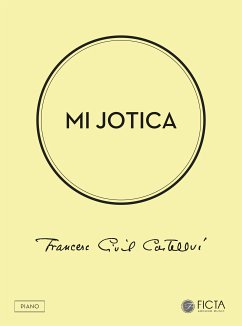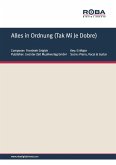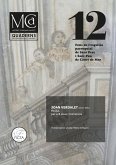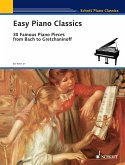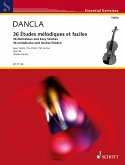Francesc Civil i CastellvíPer a piano sol
Mi jotica (eBook, PDF)
Per a piano sol
Komponist: Civil i Castellví, Francesc / Redaktion: Villalba, Miquel
4,99 €
4,99 €
inkl. MwSt.
Sofort per Download lieferbar

0 °P sammeln
4,99 €
Als Download kaufen

4,99 €
inkl. MwSt.
Sofort per Download lieferbar

0 °P sammeln
Jetzt verschenken
Alle Infos zum eBook verschenken
4,99 €
inkl. MwSt.
Sofort per Download lieferbar
Alle Infos zum eBook verschenken

0 °P sammeln
Francesc Civil i CastellvíPer a piano sol
Mi jotica (eBook, PDF)
Per a piano sol
Komponist: Civil i Castellví, Francesc / Redaktion: Villalba, Miquel
- Format: PDF
- Merkliste
- Auf die Merkliste
- Bewerten Bewerten
- Teilen
- Produkt teilen
- Produkterinnerung
- Produkterinnerung

Bitte loggen Sie sich zunächst in Ihr Kundenkonto ein oder registrieren Sie sich bei
bücher.de, um das eBook-Abo tolino select nutzen zu können.
Hier können Sie sich einloggen
Hier können Sie sich einloggen
Sie sind bereits eingeloggt. Klicken Sie auf 2. tolino select Abo, um fortzufahren.

Bitte loggen Sie sich zunächst in Ihr Kundenkonto ein oder registrieren Sie sich bei bücher.de, um das eBook-Abo tolino select nutzen zu können.
Easy Jota for piano solo written in 1918. Score. Jota fàcil per a piano sol escrita el 1918. Partitura. Jota fácil para piano solo escrita en 1918. Partitura.
- Geräte: PC
- ohne Kopierschutz
- eBook Hilfe
- Größe: 0.5MB
- FamilySharing(5)
Andere Kunden interessierten sich auch für
![Alles in Ordnung (Tak Mi Je Dobre) (eBook, PDF) Alles in Ordnung (Tak Mi Je Dobre) (eBook, PDF)]() Bernhard BohlkeAlles in Ordnung (Tak Mi Je Dobre) (eBook, PDF)2,99 €
Bernhard BohlkeAlles in Ordnung (Tak Mi Je Dobre) (eBook, PDF)2,99 €![Missa per a vuit veus amb ministrers (eBook, PDF) Missa per a vuit veus amb ministrers (eBook, PDF)]() Joan VerdaletMissa per a vuit veus amb ministrers (eBook, PDF)9,99 €
Joan VerdaletMissa per a vuit veus amb ministrers (eBook, PDF)9,99 €![Skokiaan (South African Song) (eBook, PDF) Skokiaan (South African Song) (eBook, PDF)]() Tom GlazerSkokiaan (South African Song) (eBook, PDF)2,99 €
Tom GlazerSkokiaan (South African Song) (eBook, PDF)2,99 €![Dirk Maassen - Zenith Sheetbook (eBook, PDF) Dirk Maassen - Zenith Sheetbook (eBook, PDF)]() Dirk MaassenDirk Maassen - Zenith Sheetbook (eBook, PDF)9,99 €
Dirk MaassenDirk Maassen - Zenith Sheetbook (eBook, PDF)9,99 €![Easy Piano Classics (eBook, PDF) Easy Piano Classics (eBook, PDF)]() Easy Piano Classics (eBook, PDF)8,99 €
Easy Piano Classics (eBook, PDF)8,99 €![36 Melodious and Easy Studies (eBook, PDF) 36 Melodious and Easy Studies (eBook, PDF)]() Charles Dancla36 Melodious and Easy Studies (eBook, PDF)13,99 €
Charles Dancla36 Melodious and Easy Studies (eBook, PDF)13,99 €![Owning Our Voices (eBook, PDF) Owning Our Voices (eBook, PDF)]() Margaret PikesOwning Our Voices (eBook, PDF)37,95 €
Margaret PikesOwning Our Voices (eBook, PDF)37,95 €-
-
-
Easy Jota for piano solo written in 1918. Score. Jota fàcil per a piano sol escrita el 1918. Partitura. Jota fácil para piano solo escrita en 1918. Partitura.
Dieser Download kann aus rechtlichen Gründen nur mit Rechnungsadresse in A, B, BG, CY, CZ, D, DK, EW, E, FIN, F, GR, H, IRL, I, LT, L, LR, M, NL, PL, P, R, S, SLO, SK ausgeliefert werden.
Produktdetails
- Produktdetails
- Verlag: FICTA EDICIONS
- Seitenzahl: 23
- Erscheinungstermin: 1. Januar 2021
- Englisch, Spanisch
- ISBN-13: 9790805434858
- Artikelnr.: 60948960
- Verlag: FICTA EDICIONS
- Seitenzahl: 23
- Erscheinungstermin: 1. Januar 2021
- Englisch, Spanisch
- ISBN-13: 9790805434858
- Artikelnr.: 60948960
- Herstellerkennzeichnung Die Herstellerinformationen sind derzeit nicht verfügbar.
Born in Molins de Rei on 12 March 1895, Francesc Civil benefitted from a very favourable family musical atmosphere. At the age of six, he was taught his first notions of music by his father and his brother Joseph and attended his first concerts. Then the time spent at the Escolania de Montserrat (Montserrat Choir School), from 1903 to 1907, played a decisive role in laying the solid foundations needed to develop a musical personality of the highest level. At the age of twelve, apparently by decision of his father, he moved to Paris, the world's leading artistic, literary and intellectual centre at the turn of the century, where his brother Aleix and his brother and godfather Joseph lived. There he continued his general academic training in the towns of Étampes and Pithiviers and finally graduated from the Sorbonne in Paris with a bachelor's degree. In September 1913, he was admitted to the Schola Cantorum in Paris, directed at the time by Vincent d'Indy, where he studied until 1917. The teaching at this institution, which used more innovative methods than at the Conservatory, preached a return to the Gregorian tradition and the appreciation of the Palestrina style. At the same time, it proposed a three-sided approach to learning music: the study of theory, the compositional practice of certain musical genres and forms, and the analysis of scores as a tool for understanding the different styles, from the Renaissance to César Franck (a key figure for the Schola Cantorum). It should also be noted that the instrumentalists were obliged to participate in the vocal ensembles, so that here Civil would resume the instruction in singing begun at the Escolania de Montserrat. This type of education, with the voice as the pivot, would define the composer's entire output. In addition, he would produce a body of work that perfectly reflected the premise of his composition teacher, D'Indy, according to which harmony should be the result of counterpoint.
